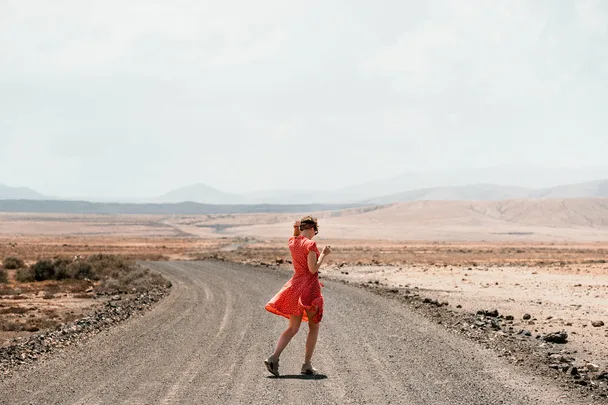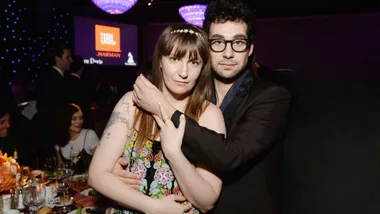Carla Stefaniak did everything “right”, her best friend said. On a five-day holiday to Costa Rica in November to celebrate her 36th birthday, the young woman chose a gated Airbnb villa near the airport. It had a security guard. It was in a safe neighbourhood. And she made sure to get home before dark. The night before she was to fly home to Florida, she contacted her best friend, Laura Jaime, on FaceTime. She showed her the earrings she bought in a market and gave a video tour of her villa.
The friends planned to see each other the next day, when Jaime was to pick her up from the airport. But Stefaniak never boarded her flight. During their phone call, Stefaniak had made a strange remark. She said the situation felt “sketchy”, but didn’t elaborate. “Carla knew at 8:20 that night that something was wrong,” Jaime said. “Sometimes we justify our intuition. But when something is triggered and something feels wrong, you have to listen to it.”
A week later, Stefaniak’s brutalised body was found wrapped in plastic and half-buried in a forest near her Airbnb rental. The Costa Rican police arrested the property’s security guard in connection with the killing.
Today, women’s increased spending power has given them the means to travel more for leisure and adventure. Shifting attitudes in the West about who can travel alone have also added to a growing industry.
Social media plays a big part, offering intimate glimpses of far-off lands. A scroll through Instagram hashtags such as #LadiesGoneGlobal, #WeAreTravelGirls and #TheTravelWomen offer millions of photos of women posing on beaches, trekking up mountains and exploring cobblestone streets – a collective and aspirational lure.
It’s not surprising then, that solo travel by women has grown in popularity. Hostelworld, an online hostel-booking platform, found in a 2018 study that bookings by solo female travellers increased by 45 per cent from 2015 to 2017, compared with a 40 per cent increase for men. “Solo travel was once seen as brave and risky for female travellers, but a shift of attitude has meant that it’s now seen as an adventurous, exciting experience allowing them to feel free with no-one else to worry about,” the company said.
A 2018 global survey by British Airways of 9000 women found that more than 50 per cent had taken a solo holiday, with 75 per cent planning solo trips in the next few years. Another ad hoc sign of women’s growing interest in hitting the road alone: internet searches for “solo female travel” have also risen drastically in the past five years, according to Google Trends.
But even as more women explore the world, there is no clear global picture of the scale of violence against female solo travellers, making it hard to pin down whether attacks are on the rise or people have wider access to the grim news. The reason: most countries do not comprehensively track violence against female travellers.
Global agencies such as the United Nations have traditionally collected data on gender violence as a whole. The US State Department offers tips for women but does not break down data on violence against travellers by gender, a spokesman said. Experts find the lack of such figures troubling.
In December, the bodies of Louisa Vesterager Jespersen, 24, of Denmark, and Maren Ueland, 28, of Norway, were found with knife wounds in their necks in the High Atlas Mountains of Morocco. That same month, British traveller Grace Millane disappeared in Auckland, New Zealand, on the night before her 22nd birthday; she was found murdered days later. In March, an Australian man was convicted of kidnapping and raping a Belgian traveller seeking work after keeping her locked in his pig shed for two days.
There’s no question that women face unique risks when travelling solo, experts say. “We have evidence that shows that women face risks that men don’t face in public spaces, at home or wherever they may be,” said Phumzile Mlambo-Ngcuka, executive director of UN Women, an organisation that promotes female equality.
Increasingly, “wherever they may be” includes alone in foreign countries. But she added that violence against female tourists was a thread in the broader fabric of violence against women around the world. “The root cause of this kind of violence against women in communities and in public and private spaces has a lot to do with the underlying gender stereotypes, social norms, entitlement and patriarchy,” Mlambo-Ngcuka said.
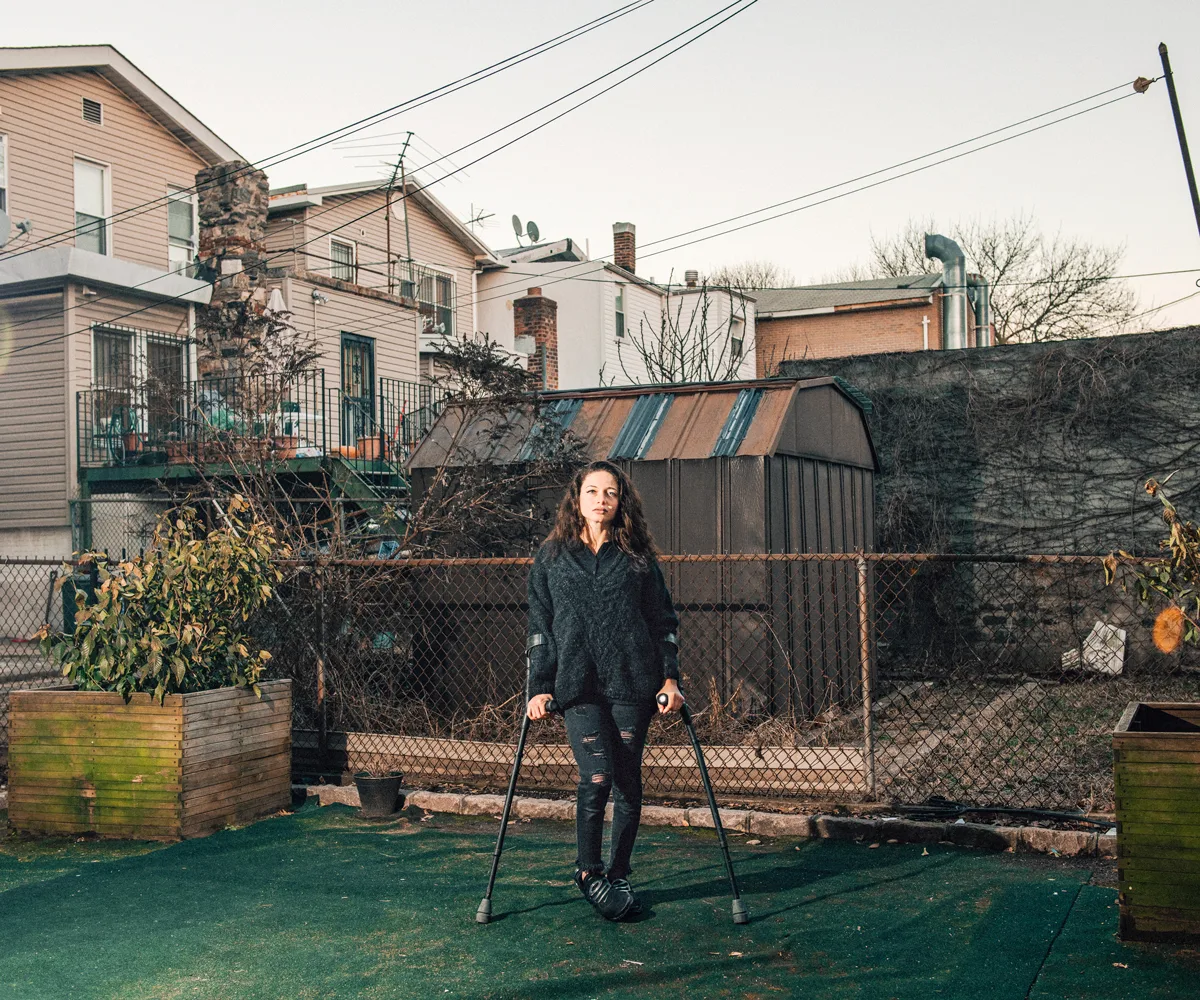
Still, it means women such as Hannah Gavios, 26, discover horror away from home. After university in the States, she travelled to South-East Asia on her own in 2016, visiting Thailand on a break from teaching English in Vietnam. One evening, she was walking alone after dinner in Krabi, known for its beaches and as a popular hangout for young tourists, when a local man offered to guide her back to her hotel. She said she was afraid of getting lost, so she followed him. But just as she grew increasingly uneasy, he attacked. Fleeing for her life, Gavios tumbled from a cliff and fractured her spine. The man sexually assaulted her while she lay helpless for 11 hours. Gavios was hospitalised for months, first in Thailand and then at home in New York, and had to learn to walk again using crutches and custom leg braces. Her attacker was eventually arrested and sentenced to five years in prison.
Elly Warren, 20, wasn’t as fortunate. The Melburnian was travelling through south-eastern Africa alone in 2016 when she was murdered and dumped in a toilet block in Mozambique. Warren had spent six weeks volunteering for an eco-research company called Underwater Africa alongside marine scientists. Her distraught mother told Fairfax Media that her daughter was “just one of those girls who wanted to travel the world and see everything she could before 30”.
Seasoned solo travellers say that preparation can be the key to minimising risk. For Cassie De Pecol, 30, who holds the Guinness World Record for “the fastest time to visit all sovereign countries”, travelling alone means having a long list of precautions. The US activist practises Krav Maga, an Israeli self-defence technique. She carries a GPS tracker and makes sure someone knows where she is at all times. “It might sound extreme,” she says. “But I attribute having safely travelled to 196 countries alone to these procedures.” De Pecol says gender-based violence is an unfortunate reality for women who travel. “The awareness of needing to watch our backs is something men don’t necessarily need to be aware of.”
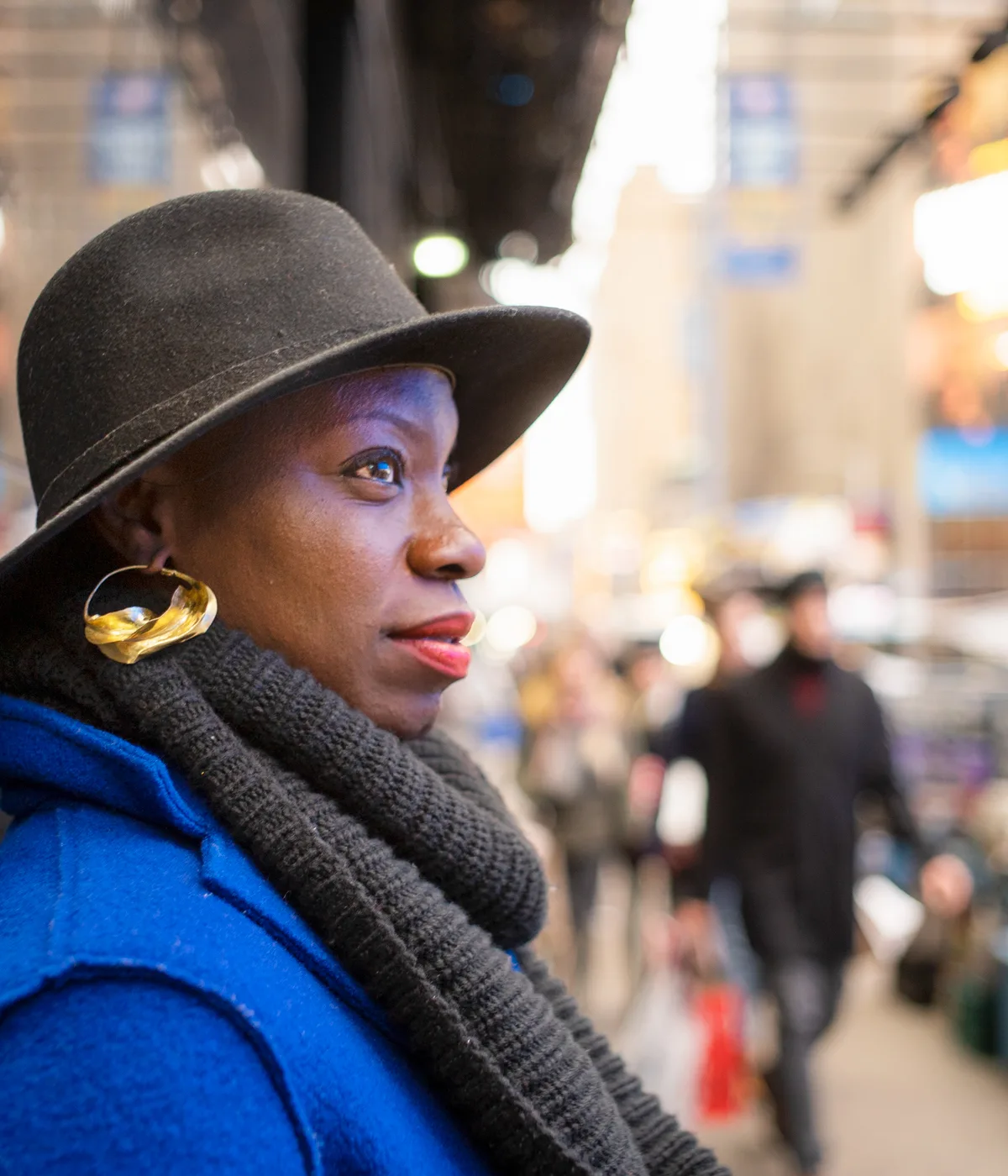
Jessica Nabongo, 34, is on a mission to become the first black woman to visit every country in the world. She has been to more than 180 so far – 54 of them alone – and hopes to complete her journey in October. Her road map for safety includes trying to stay in hotels with 24-hour security. If she stays in an Airbnb, the host has to have received excellent reviews and achieved “superhost” status. She also takes Ubers so that her location is tracked.
Nabongo acknowledges that “we tell women what not to do to avoid being attacked instead of telling men not to attack women”. But she says she dresses conservatively until she can assess whether what she wears matters in the place she is visiting. She’d prefer a world where women can just pack up and travel without having to do the extra legwork that solo male travellers don’t have to, but says that’s idealistic.
To help one another traverse the world safely, women have formed their own online communities. Apps provide another level of support for women travelling alone. Free ones, such as Chirpey, RedZone, MayDay, TripWhistle and Noonlight let women flag incidents and areas of danger, and contact local law enforcement.
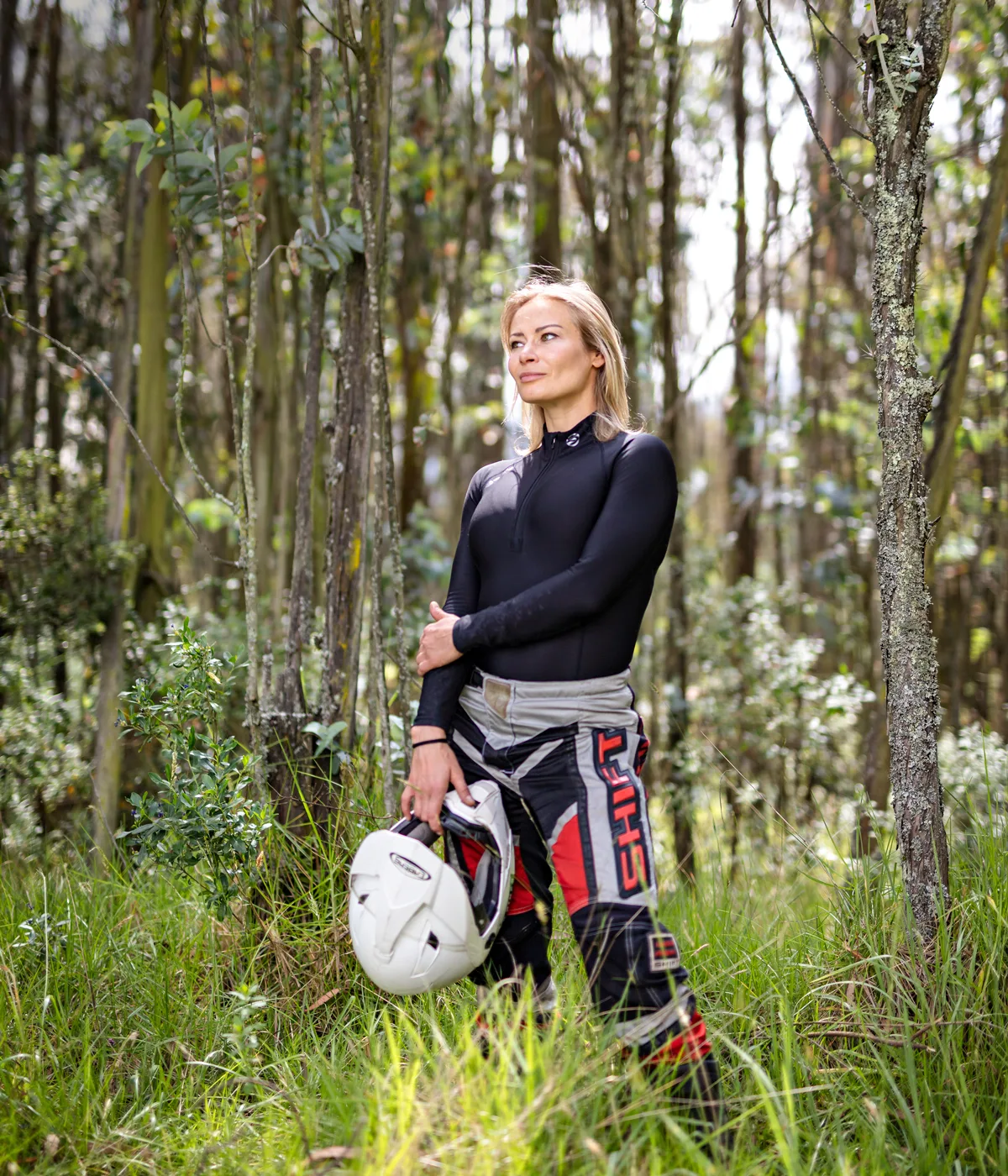
Yet even with the best preparation, trips can go wrong. In 2016, at 35, Vasilisa Komarova embarked on a motorcycle journey through the Americas. She visited Cuba and spent time in the Atacama Desert and Chilean Patagonia. She was living a dream, chronicling it all with photos on social media. Then, everything changed. “At some point, maybe because everyone I was meeting was so kind, I think I put down my guard a little,” she explains. In June 2017 , while she was camping in northern Bolivia in an area people had said was safe, three men with machetes dragged her out of her tent. They beat her, dislocating her arm in three places. While two held her down, one raped her. They stole all of her belongings, urinated on her tent and left her for dead. Afraid they might come back, Komarova lay still all night. In the morning she used her laptop, which her attackers had missed, to get help. But what she experienced was a climate of impunity. The authorities didn’t want to take her to a doctor; the doctor didn’t want to see her because she could not pay. With the help of the British Embassy, Komarova made contact with an advocate who helped her file a criminal complaint and begin the legal fight against her attackers. “The attack, the process, it broke me down,” Komarova says. “But I had to find the strength inside myself.”
A year later, she watched as her attackers were sentenced to a combined 42 years in prison. In November, Komarova rode out of Bolivia on her motorcycle. The first night she put her tent up after leaving, she was afraid, she admits. She is still on the road, and wants other women to travel, but to be on alert – always. “My guard is really high,” Komarova says. “People don’t always deserve my scepticism, but that’s how it has to be.”
When Stefaniak’s body was discovered near her villa, her relatives were shattered. Now, they are fighting for justice in Costa Rica’s courts and have also filed a lawsuit accusing Airbnb of negligence. Their lawyer in Costa Rica suggested a callous disregard in the aftermath, noting that the same day Stefaniak vanished, her Airbnb room was being cleaned and new renters checked in. The family also says that the local host evaded negative reviews by changing the name of the listing, and no background check of the security guard was conducted even though he had access to all the rooms on site. Airbnb, in a statement, said it had removed the villa where Stefaniak had stayed from its platform, and had been in contact with the authorities. The company also said it had made strides to address women’s safety concerns, creating policies that emphasise women’s needs – including removing any host or guest accused of sexual assault and adding a clause in its non-discrimination policy that allows female hosts to accept only female guests.
As for Hannah Gavios, she is still partly paralysed, but since the attack has become a yoga instructor. Last year, she completed the New York City Marathon – on crutches. She says she doesn’t want her story to scare other women away from having the enriching experience of travelling solo. “The more we tell women not to travel alone and the more we send the message that the world is dangerous, in a way, we are also supporting that belief,” says Gavios. “Rather than horrifying people, I want [them] to go into [travel] with a little more bravery and a little more knowledge.” From her perspective, there are no dangerous countries, just dangerous people. “You can’t control the world,” she says. “But you have to live your life and not let these terrible stories stop you. Because otherwise, you let them win.”
This article first appeared in marie claire Australia, September 2019 issue.
